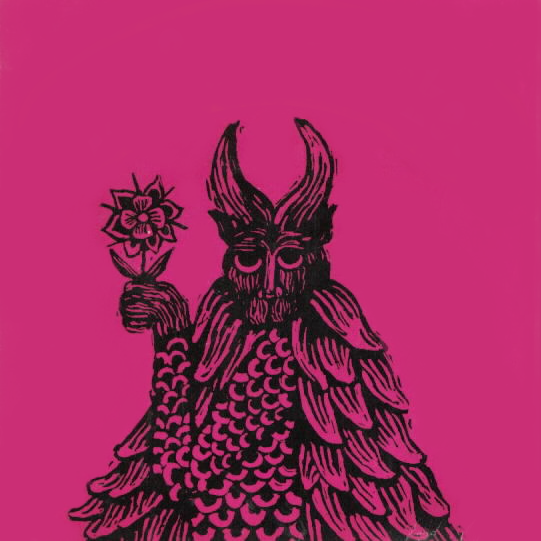I have this mental fanfiction that every god has a way to be killed, and when you kill them you can get things from them.
For instance, the one that I refer to the most often is Ben Franklin using a kite and a key to slay Zeus and to steal electricity from him.
And then of course there’s Prometheus who intentionally and willfully laid down his own life so that humanity could have fire.
But there are more gods than there are words to describe them.
What other gods have we claimed existed, that we humans have likely slain, and what do you think we got from them?
Then you will like American Gods (the novel or TV shows).
Gods can be killed once their worshippers abandon them. Without anyone to worship them, they will be weakened to the point of non-existent.
I’m entertained by the idea of a divine plane working on Mega Man rules, where after you kill a boss you get its weapon for yourself.
Oublievish, god of the forgotten
We cast him into darkness so deep that the light could not reach him, and he ceased to be. From him, we stole the ability to forget. And then we used that ability to erase our memory of our crime. Now, no one knows he even existed.
Zeus has to be a toaster in the bathtub kinda death
Bast is still alive.
We killed Yaweh, gained a deeper understanding of the abyss, and unleashed fundamentalism.
You mean El?
Nah, definitely jehova, which definitely isn’t a mistranslation.
El was killed by his son Yahweh, who commanded us all to honour our parents, then made us forget about El, with no god above Yahweh. According to Moses’s war on Egypt that required religious divisiveness to kill all of those who didn’t believe in “thou shalt not murder” as hardcore.
Terry Pratchet wrote in Good Omens that the apocalypse horsemen Pestilence was slain by the advent of penicillin.
From my own head:
Mercury was killed to bring about the Internet.
Athena was not killed, but severely weakened to domesticate the herd animals.
We sacrificed Fenris for lap dogs.
I love this thread and will be working some of this into my next RPG storyline.
Athena was not killed, but severely weakened to domesticate the herd animals.
Wouldn’t this be more Artemis?
Likely, I get them confused.
There’s a myth that when the Spanish arrived in the Philippines, the precolonial supreme god Bathala went into hiding with the help of the Goddess of Lost Things, and has seemingly stayed lost
The first microscope was, in fact, Asclepius’s stolen staff. That lead to germ theory.
In the early 20th century, we finally mined deep enough to collapse the underworld on Hades and found Uranium.
A DARPA radio transmitter fried Hermes in flight and brought us the internet.
One of the V2 rockets landed on Selene, who was visiting Earth, and opened up the way to travel to the moon.
All religion is fan-fiction. The only problem is that once you make it, followers take it far too seriously and start killing and hurting innocent people over it.
Fictional gods don’t die. Nobody reads their book anymore. Same as any other fictional character. They’re just replaced by something new, that is just a remake of something old.
I mean, I’m glad that there are pockets in the world where people feel confident in saying that nobody studies religion anymore because representation is important, but saying “nobody reads their book anymore” casually overlooks like six plus billion people who do actually participate in a religion of some type.
Like, I get what you’re saying, but more people are religious to some degree than are not.
By a huge margin.
I checked the World Population Review website for the least religious countries, and it seems like there’s approximately 1.2 to 1.4 billion officially non-religious people in the world as of 2020, And three-quarters of a billion of them are in China.
So if we were all placed onto a massive chessboard and forced to battle it out life or death style, the atheists are gonna be out numbered approximately 6 to 1.
I said all of that not to disparage your atheism, but rather to say that it’s okay to have mental exercises in fiction about religion and religious adjacent topics like this, if for no other reason than to enjoy our imagination and to have conversations with each other.
They were killed by logic and reason. We figured out the real reason behind lightning, servere storms, drought, diseases, etc.
I think you misunderstood the point of the question, lol.
It’s fanfiction.
It’s like saying that the reason why we have not solved fusion is because we have not killed Apollo because he’s safe in the sun, and the only way to solve fusion would be to send a probe to the sun with a live chicken and some peach preserves as part of the method to kill Apollo to steal the power of fusion from his corpse.
I have this mental fanfiction that every god has a way to be killed, and when you kill them you can get things from them.
I’ll encourage you to investigate the AD&D-D&D 5th Ed. material concerning the Forgotten Realm setting’s Gods, all the way up to Ao. Murdering them imbues their killer with their ‘portfolio’, specific deity controlled influence over Harvest, War, Music, Healing, etc. See also, the entire plot concerning ‘The Time of Troubles’ most notably seen in Baldur’s Gate (1998).
Wait, so Forgotten Realms gods work on Santa Clause rules?
Never thought about it in terms of a Tim Allen movie, but yes lol
Pretty much, except you’d need a really really really tall house for one of the gods to fall off of.
You’d better hope that they don’t have a Ring of Featherfall/Levitation, or have some other means of teleportation/flight too, because Gods won’t help you if you screw it up and they survive lol
God is dead. Of his pity for man hath god died. So be thee warned against pity. From where thence there yet cometh unto men a heavy cloud. Verily i understand the weather signs.
But attend also to this word. All great love is above all its pity. For it seeketh to create what is loved.
Myself do I offer unto my love and my neighbor as myself. Such is the language of all creators.
All creators however are hard. Thus spoke Zarathustra.
The old Mesopotamian gods were each patrons of a city, and their importance waxed and waned with the strength of that city. Babylon was, for centuries, the single largest city on all Earth. It was the pinnacle of human society’s work, the centre of learning and culture nearly unparalled by all it surveyed. With this strength, so too did Marduk supplant Enlil and become known as the foremost amongst the Annunaki.
Marduk was said to be a temperamental god, both quick to anger but willing to forgive. When Sennacherib brought the might of the Assyrian empire down upon Babylon and pillaged the city, the wrath of Marduk soon found him when his son Arda-Mulissu murdered him. Sennacherib had not, however, acted out of simple hate or bloodlust; he was avenging a son. Marduk therefore did not curse all of Assyria nor all of Sennacherib’s plans, as Sennacherib’s chosen heir Esarhaddon - Arda-Mulissu’s younger brother - prevailed in the conflict for the throne. Esarhaddon arranged for enormous restoration works to Babylon and its neighbours, an effort to make right the destruction wrought by his father, and even returned the stolen statue of Marduk. His reign would go on to be incredibly successful, and he even ensured a peaceful succession of his sons to both Assyria ad Babylon despite the tumultuous nature of his accession. Marduk’s wrath was great, but so was his capacity for mercy.
The end would come at the hands of an outsider. Babylon declined as Persia rose to dominance. Marduk remained respected and his rituals were observed, but the new imperial masters took their toll. Marduk was not dead, but he and his city were now shells of their former selves. It is perhaps ironic, then, then Marduk would share his fate with that empire. A conqueror from a backwater across the narrow strait to the west arrived, a young man by the name of Alexander whose armies fought with the all the might of Marduk himself when he struck down Tiamat. Alexander’s march took him from Greece to Persia to the distant banks of the Indus, stopped at last only by the revolt of his own soldiers.
It wasn’t long before Marduk’s wrath found Alexander. The young conqueror was warned by Marduk’s people that for him to march west, into the setting sun, would be the death of him. Even now, Marduk offered advice to his foe. They were right, and Alexander lay dead in Babylon at only 32 years old.
At last, though, Marduk could not forgive. His people had been crushed; his prophecy had been ignored; there was no heir of Alexander to heal the wounds. It was at this moment, stripped of his mercy and left only with wrath, that Marduk was no longer Marduk, and so he too died.
Babylon survived Marduk, but it would never again be the colossus that it once was. It would fade over time, its bricks stripped away to build new cities, until it was forgotten.
Marduk’s death left us all a legacy that matched his temperament. Soon, humans identified and began to produce potassium nitrate, or nitre. This remarkable mineral is both life-bringing and life-ending, as it is a foundational component of fertilisers and gunpowder. Thus, even with his death, Marduk brought both wrath and mercy.
To be less flowery for a moment:
- The thing about patron gods is, in broad terms, thought to be true about the Mesopotamian gods. Marduk was basically a nobody until Babylon’s rise to prominence, after which he replaced other gods in extremely important mythical roles due to Babylon’s influence
- The stuff about Sennacherib destroying Babylon, his son murdering him, his two sons fighting over he throne, and the winning younger son rebuilding Babylon all happened. Babylonians at the time are said to have considered Sennacherib’s fate a form of divine retribution
- There is some dispute over the character of Marduk, but we know of prayers praising both his fury and his mercy so I’m going with it
- The earliest mention of nitre that I know of is from 3rd century CE India, but the work in question really was (coincidentally) started roughly when Alexander the Great died. The finished work is a compilation of many other texts, and I do not know if the one mentioning nitre is one of the early ones
Until Dionysus died, we only had super strong wine that was only tasty if sweetened with lead.
After killing him, we were awarded with moonshine, whiskey, and vodka. But it also unleashed all the STDs known to man, straight out of Pandora’s disease-ridden box.
Pandora’s disease ridden box
Strange way to call Pandora a harlot.







